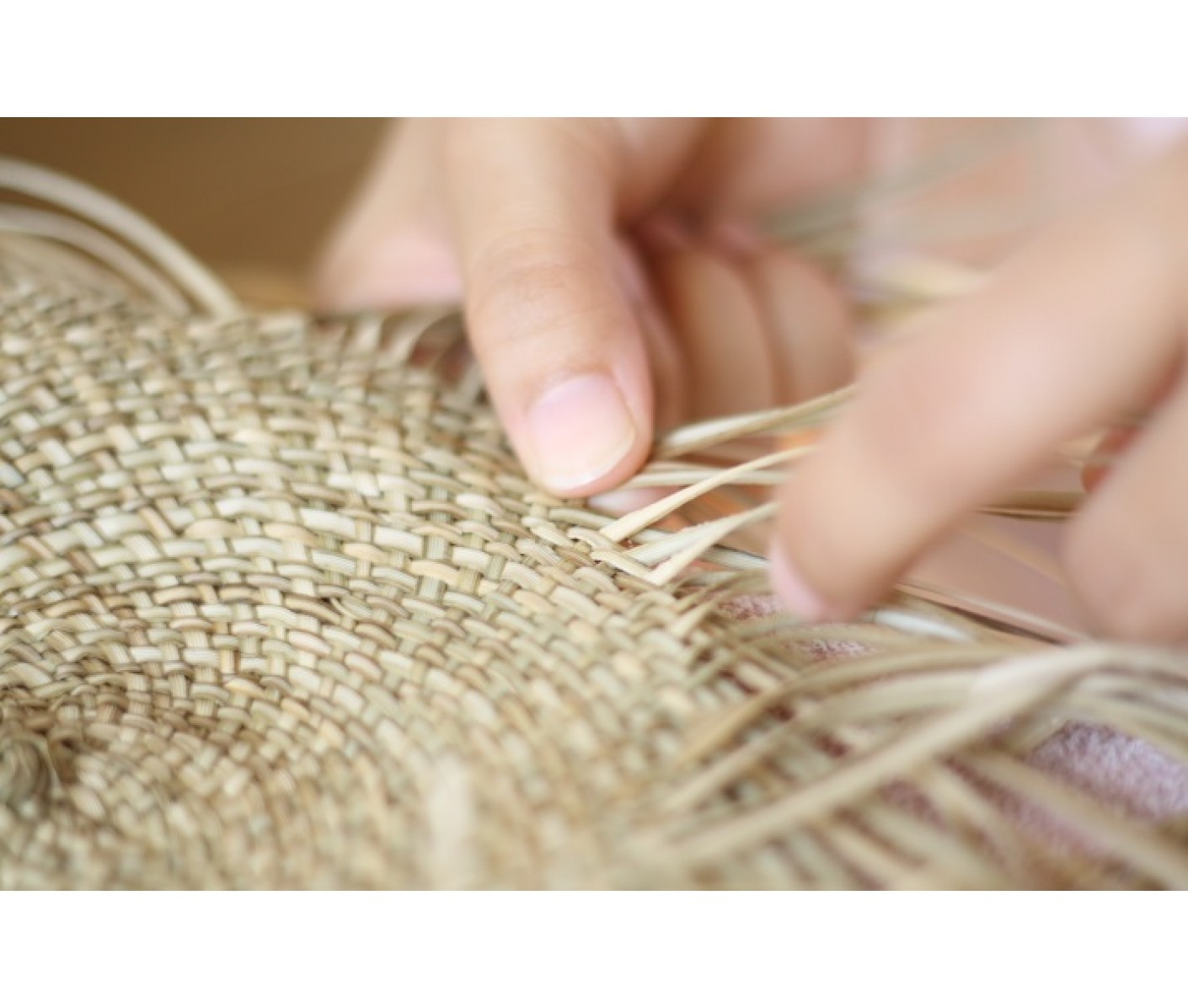Screw-Pine Weaving in Kottapuram

The heritage town of Kodungallur, situated in the southernmost state of Kerala, is a major hub of screw pine weaving in India. Many of the rural residents of the ancient, coastal village of Kottapuram – a village in the town of Kodungallur, are screw-pine artisans. This is primarily because of the abundant growth and availability of screw-pine trees in this remote, coastal land. Screw pine weaving has been undertaken by the people of Kottapuram for a very long time now, and, as a matter of fact, these natural fibre weaving artisans are mostly women.
On Screw-Pine Weaving
Pandanus, commonly called Screw-Pine, is a species of palm-like trees found in coastal areas. These plants grow from sea level to 3,300 m (10,800 ft). Screw-pine fibre is essentially used in many of the natural handicraft products across the globe and is primarily pursued here at Kottapuram by the weaving artisans.
Screw-pine leaves are harvested, sliced and the fibre is dried and dyed, the latter according to specific preferences. This is a generally accepted process and is the most convenient method of extracting the natural fibre and thereby turning it into a usable raw material for the purpose of crafting sustainable products. The weaving artisans of Kottapuram have been following this process for the past many years.
Common Water Hyacinth
Along with screw-pine fibre, common water hyacinth plant is also efficiently utilised by the artisans in producing handicraft materials. Like screw-pine trees, the aquatic plants of Pontederia crasipes - commonly known as common water hyacinth, too, are found in plenty in the coastal, evergreen village of Kottapuram. The rich fibre content in common water hyacinth enables the free-floating aquatic plants to be a beneficial ingredient in attaining finished handicraft products. Elements of jute are also sometimes blended along with the primary raw materials to draw a fine, lovely and perfectly crafted product.
Kottapuram Integrated Development Society (KIDS)
It is here the Diocese of Kottapuram came forward and took up the responsibility of integration of all the various activities under the different stages in screw-pine fibre crafting onto a single unit. Such a crucial step forward not only combined and brought together the different artisans and people involved in the weaving process - ranging from raw material extraction to the final process of product-designing, but also developed a brand based on eco-friendly and human values, thereby building a community-based organisation of fibre craft artisans and workers. In 1987 Kottapuram Integrated Development Society (KIDS) was established as the official organ for social action of Diocese of Kottapuram and ever since, has been intensely involved in their commitment to the sustainable development of the community by integrating and promoting all varying elements and resources. From 1988 to 2000 the non-governmental organisation strived hard to form a unity out of all the scattered elements involved in the handicraft weaving collective.
Fast forward to 2018, the southernmost state of Kerala was shaken and devastated by intense, unstopping rains. The homes and properties of some of the weaving artisans of Kottapuram were damaged in the destructive rains and the outbreak of the Covid virus pandemic two years later furthered the economic damage in terms of daily income and profit as the ratio of customer visits to the coastal lands reduced drastically, directly affecting product sales.
However, the weaving artisans never lost the will to create, and today, almost two year after the outbreak of the pandemic, they still continuously strive forward in converting raw materials and making adorable, usable and eco-friendly products out of them. Masked and energetic, they are more than ready to be creatively active and produce more and more handicraft products, vibrant and cost-effective. Since most of these artistes live in and around the coastal area, commutation and communicability becomes easier even during these extra-cautious times. Along with women artisans, many differently abled workers too are employed as part of the integrated development initiatives.

